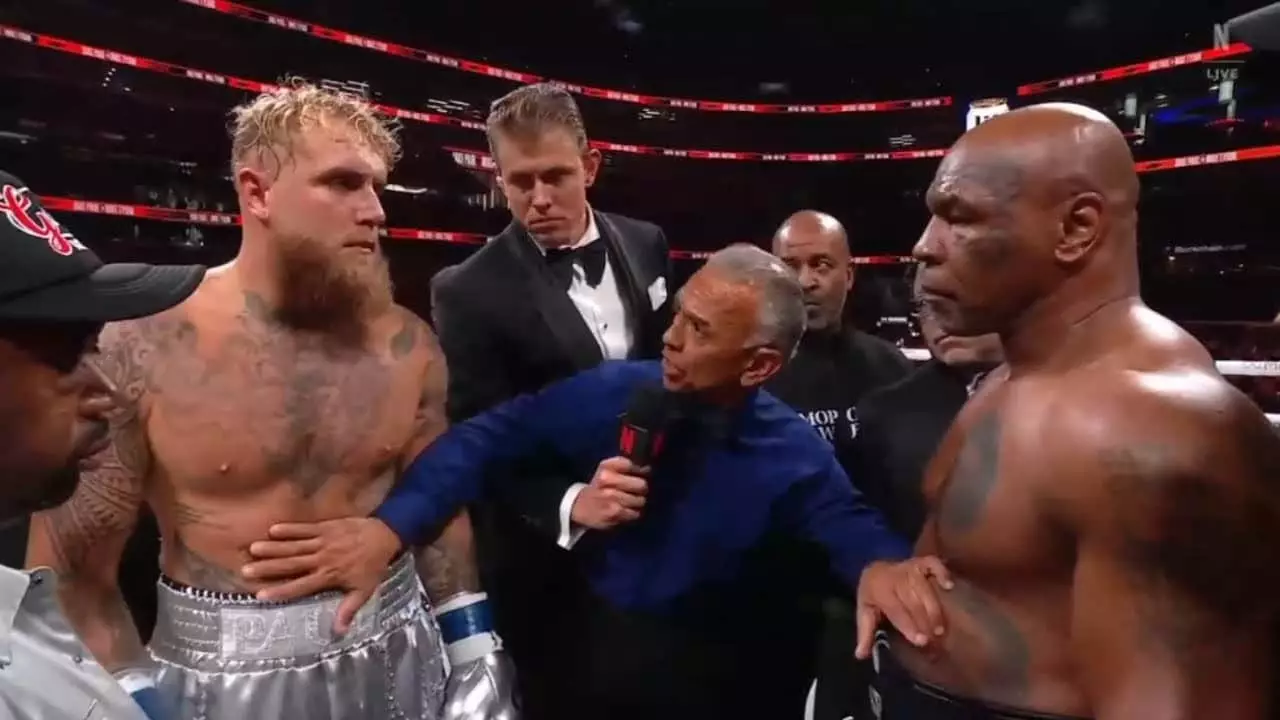Jake Paul’s recent bout against the legendary Mike Tyson has raised eyebrows and ignited discussions across the boxing community, particularly among seasoned fighters and critics. Following this event, fellow boxer Paulie Malignaggi did not hold back in his criticism, lambasting Paul’s hesitant fighting style and what many perceived as a lack of heart. This article delves into the details and implications surrounding this contentious match, highlighting the concerns voiced by various parties and drawing connections to the broader landscape of celebrity boxing.
When fans tuned into the fight, they were eager to witness an electrifying spectacle, a clash between a young influencer and an iconic, albeit older, heavyweight champ. Given Tyson’s storied history in the boxing arena, the expectation was that Paul’s performance would, at the very least, pay homage to the entertainer that Tyson has always been. Instead, fans were left feeling duped after witnessing Paul’s lackluster approach. Malignaggi rightly pointed out that Paul exhibited a timidity in his punches, culminating in a performance where he retreated dramatically after each strike, ultimately failing to engage with Tyson in any meaningful way.
As social media saturated with post-fight commentary, it became evident that many fans felt cheated. They had invested their time and money not for a calculated, safety-first strategy, but for an engaging confrontation. The fight’s lack of intensity felt like an enormous letdown, especially considering that Paul had ostensibly trained for this moment. Ultimately, while Paul managed to secure a unanimous decision victory, the manner of his win was overshadowed by his defensive tactics that stripped the fight of any drama or excitement.
The Pervasive Influence of Celebrity Boxing
In today’s entertainment-oriented boxing climate, celebrity fighters often occupy a unique space. Jake Paul, given his background and expansive social media platform, has navigated this landscape fairly adeptly, promoting his matches and generating significant revenue. However, with this fame comes scrutiny, particularly when performances fail to meet the expectations of traditional boxing fans.
Critics like Malignaggi see Paul as a product of the celebrity boxing trend rather than a legitimate contender. They argue that Paul is more focused on maintaining his brand than genuinely improving as a fighter. Jake’s approach appears strategic, seeking out opponents with perceived advantages that would tilt the scales in his favor—namely, older fighters or those lacking extensive boxing experience. This penchant for cherry-picking opponents diminishes the sport’s integrity and raises questions about Paul’s long-term viability as a serious athlete.
Malignaggi’s comments on Paul’s reluctance to engage fully in the bout underscore a critical point within professional boxing: the importance of taking risks. In any sport, particularly one as raw as boxing, fear can be a combatant’s worst enemy. Paul’s cautiousness against a fighter nearly three decades his senior portrayed him not just as an opponent but as someone lacking the resolve and passion expected of a budding boxer. His reluctance to engage in a meaningful exchange failed to capitalize on what could have been a pivotal moment in both fighters’ careers.
The fight’s structure was particularly unflattering. Instead of employing a forward-pressing strategy that might have led to a memorable knockout or a thrilling finish, Jake opted for a retreat-focused game—one that many viewed as cowardice. Such an approach might secure him victories on paper but undermines the very essence of boxing as a sport where courage and strategy must go hand-in-hand.
As Jake approaches his 28th birthday, it’s become increasingly clear that he faces significant hurdles if he aims to be taken seriously in the professional boxing realm. The reality of losing to Tommy Fury, a fighter not typically seen as elite, further complicates his narrative and raises doubts about his potential. Critics will not take kindly to a seemingly superficial approach to self-promotion that overshadows genuine skill development.
The ultimate takeaway from this analysis is the importance of authenticity in sports. While Paul has effectively leveraged his celebrity status to gather a following and generate revenue, the question remains—will his lack of commitment to the sport tarnish his legacy in the long run? The boxing community remains vigilant, watching as Jake Paul navigates this complex arena, waiting to see if he can evolve from an entertainer into a legitimate contender, or if he will remain ensnared in the trappings of his manufactured persona.


Leave a Reply